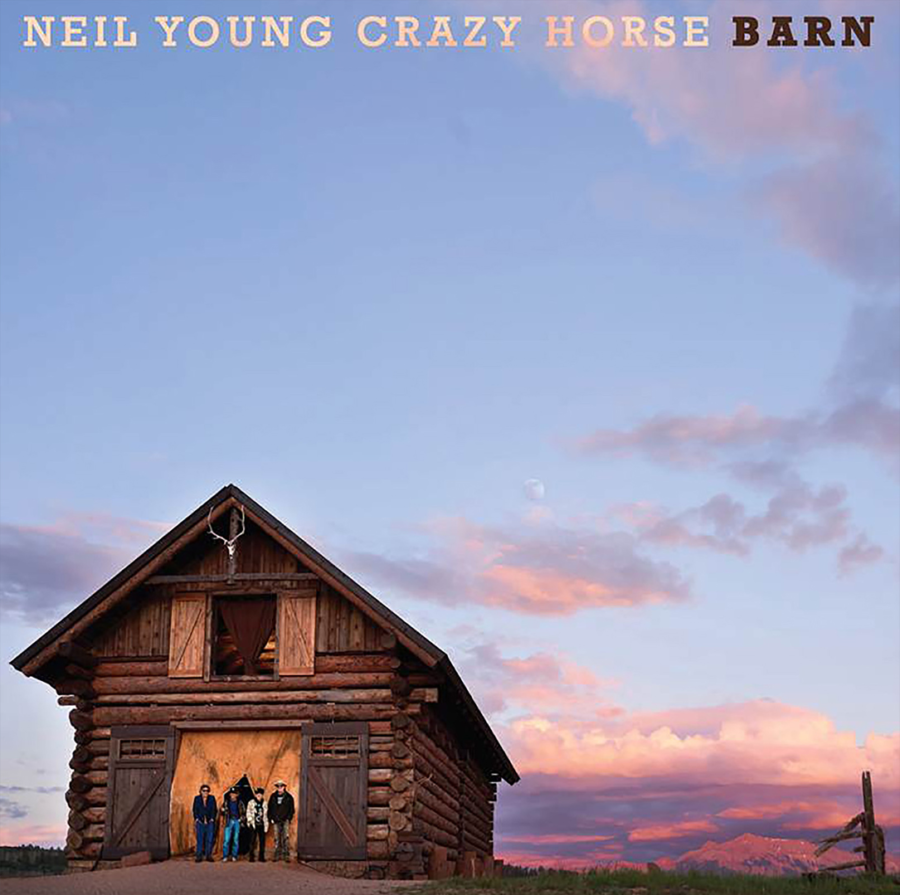Neil Young’s Barn is a classic folk album with a unique atmospheric twist
Neil Young’s latest album Barn, released last December, is a classic take on the folk-rock genre with a twist. Each track was recorded in a barn sitting high up in the Rocky Mountains. While Young certainly did not pull out anything too earth-shattering or unique in terms of technique or instrumentation, the almost indie sound of the rugged studio adds a lot of charm to an otherwise run-of-the-mill folk album.
Opening up the album is “Song of the Seasons,” and it’s a good overview of what’s to follow. With a voice treated gently by age, Young sings of natural beauty in a tone faintly reminiscent of late Johnny Cash. High-pitched and wavering, his singing comes across as wise and knowledgeable. Later on, a sweet harmonica and accordion duet that seamlessly blends country and European tones soothes like a blanket on a cold night before one final verse is sung. The opening track is the epitome of American folk.
Next up is “Heading West,” the track that shows the duality of Barn’s tone best. While “Song of the Seasons” was calm and soft, “Heading West” is a backward rock anthem equipped with distorted guitars and cymbal-centric drums. Young’s voice, while great in more folky songs, really shines in this one. The lyricism is also a step up, being much more inspired and vivid than that of its predecessor, with lines like, “When I was a little boy/Pulled my wagon all through the town/Went fishin’ at the mill/Got home before the streetlights came on.” On this track, Young’s words convey a strong sense of reminiscence and nostalgia.
A crunchy and ragged guitar interlude follows a brief false ending around halfway through the song, keeping the tune fresh and enjoyable. If one guitar section wasn’t enough, an equally punchy solo wraps the track up, leaving the listener with a feeling of finality similar to driving out of the city to a distant retreat on a dark and rainy day.
The fourth track, “Canerican,” is the album’s weakest. There was a lot of potential here for a relaxed, sauntering rock ballad, but the over-the-top and vaguely patriotic lyrics take it down a notch. The title and lyrics of the song are clever, both taking a nod at Young’s Canadian and American affiliation, but all of that nuance is lost in the whirlwind of the corny refrain “I am American/American is what I am.” It may still be worth listening to for the shrieking guitar solo that leads this disappointing track off the stage.
Thankfully, after the disappointment of “Canerican,” the album jumps into the best song on the album, “Shape of You.” Adhering to Young’s signature folk-rock sound, “Shape of You” is a track where Young’s voice truly feels at home and his songwriting is on point. It’s vivid, soothing and country in a charming way. Short guitar licks burst through the lyrics like thunder through a rainstorm. Best of all is Young’s descending falsetto as he sings through the chorus. It’s a unique moment on the album vocally and is a nice treat on an already emotional and impressive track.
To top it off, the song ends with an endearing harmonica solo over a bluesy piano. “Shape of You” is the point at which the album gets back up and brushes itself off.
Establishing a pattern of great tracks, “They Might Be Lost” is a somber take on the album’s prevailing folk sound. Somber harmonica rings out like a foghorn at sea while Young sings of loneliness and waiting. The whole song feels like sitting in an empty lot at night watching the stars in the sky. The lead guitar is clean and exceptionally twangy on this track and really shows the album’s country influence. “They Might Be Lost” is dreamy, reflective and one of the most soothing songs off of the album.
In contrast to “They Might Be Lost” is the loud and booming track “Human Race,” with dark, low chords pitted against Young’s bright voice. His vocals are urgent yet still confident and clear, like a preacher. Fittingly, a choir backs him up between screeching guitars and powerful drums. There isn’t anything to complain about with “Human Race.” It adds enough new elements for it to stand out and keeps enough old elements for it to not feel out of place. Certain parts of the track echo the likes of Tom Petty, with ragged vocals and eccentric guitars.
The end of the track is a classic, spazzy hard-rock outro, with spastic drum hits and deep, wailing guitar sounds that create a feeling of being stuck in a storm with nothing to do but wait it out.
“Welcome Back,” the album’s second to last track, is one sure to please any fan of The White Stripes. It’s almost jazzy backing with spoken word and interjecting guitar licks really reminds of “Ball and Biscuit,” just softer. At eight minutes, perhaps the length could have been cut down, but that’s also the beauty of it; “Welcome Back” feels like a truly raw jam session. For those who enjoy the heavier and more distorted guitars throughout Barn, “Welcome Back” is the perfect dessert to wrap up the meal, topped with a whopping one-minute and thirty-second guitar solo. In it, the guitars come together in industrial harmony, wailing longingly with droning feedback and edge. This track is by far the most experimental on the album and is worth at least one full listen in spite of the daunting runtime.
Ending the album is “Don’t Forget Love,” which, while shining at times, is more or less as disappointing as the name sounds. What really does this song in is the ridiculous chanting of its title. Young’s falsetto is great when used properly, but here it’s almost childish and hard to listen to. The verses, however, are where the song shines. They have a nice final message of persistence and love, and are comforting like an old lullaby, with moments like, “When the storm comes and the lights go out, don’t forget love/When the rains give way to sunshine, don’t forget love/There’s a secret in every story, in the ways that we remember love.”
While the incessant use of the chant throughout the song drags it through the mud a bit, the chant makes for quite a powerful and meaningful outro to the song and Barn in its entirety as the other instruments fade away. The charm of “Don’t Forget Love,” much like anchovies, is an acquired taste.
Overall, Barn is as good as it is unique. Bridging rock, folk, country and even getting a little experimental, there is something in it for everyone. What keeps the album cohesive is its raw, near indie sound that came with its unusual place of recording. With a fun, backcountry sound, Barn takes you to a dirt road bordering endless fields of wheat and grass baked in golden sunlight.
Lincoln Wheeler (he/him) is a senior who loves playing hockey and guitar. He enjoys being a journalist because he wants to bring new perspectives and ideas to people.







